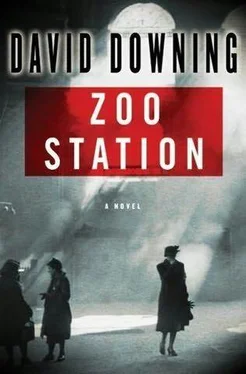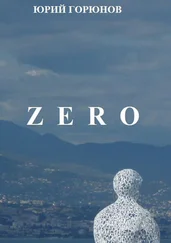David Downing - Zero Station
Здесь есть возможность читать онлайн «David Downing - Zero Station» весь текст электронной книги совершенно бесплатно (целиком полную версию без сокращений). В некоторых случаях можно слушать аудио, скачать через торрент в формате fb2 и присутствует краткое содержание. Жанр: Шпионский детектив, на английском языке. Описание произведения, (предисловие) а так же отзывы посетителей доступны на портале библиотеки ЛибКат.
- Название:Zero Station
- Автор:
- Жанр:
- Год:неизвестен
- ISBN:нет данных
- Рейтинг книги:5 / 5. Голосов: 1
-
Избранное:Добавить в избранное
- Отзывы:
-
Ваша оценка:
- 100
- 1
- 2
- 3
- 4
- 5
Zero Station: краткое содержание, описание и аннотация
Предлагаем к чтению аннотацию, описание, краткое содержание или предисловие (зависит от того, что написал сам автор книги «Zero Station»). Если вы не нашли необходимую информацию о книге — напишите в комментариях, мы постараемся отыскать её.
Zero Station — читать онлайн бесплатно полную книгу (весь текст) целиком
Ниже представлен текст книги, разбитый по страницам. Система сохранения места последней прочитанной страницы, позволяет с удобством читать онлайн бесплатно книгу «Zero Station», без необходимости каждый раз заново искать на чём Вы остановились. Поставьте закладку, и сможете в любой момент перейти на страницу, на которой закончили чтение.
Интервал:
Закладка:
The train rolled into Posen-or Pozna?, as the plethora of signs proclaimed-a few minutes early. Russell took a taxi from the forecourt to the Bazar Hotel, where he’d booked a room. “Just the one night?” the receptionist asked incredulously, as if the charms of Posen required weeks to appreciate. “Just the one,” Russell agreed, and was shown rather begrudgingly to an adequate first-floor room. There were only a few hours of light remaining, so he went straight back out again, pausing only to examine the display in the lobby, which documented the hotel’s pre-war role as a hotbed of Polish nationalism.
The town, though pleasant enough, suffered in comparison to Cracow. Its churches were not quite as beautiful, its streets not quite as charming, its square-the Stary Rynek-not quite as grand. As he wandered somewhat aimlessly around the city center he noticed several faded German names on streets and buildings, but the German language was still audible on those same streets, along with Polish and Yiddish. It would take another war, Russell thought, before the winners could take it all.
He dined in the hotel restaurant. The veal escalopes-zrazikis-were excellent, the wine surprisingly good, but neither could dispel his deepening depression. It wasn’t just McKinley and Wiesner; he had hardly spent two waking hours with Effi since Rьgen Island, and his contact with Paul since returning from England had consisted of two friendly, but brief, telephone conversations. And here he was in darkest Posen, waiting for Shchepkin to go through one of his cloak-and-dagger mating rituals.
He went back to his room, hoping against hope for a simple knock on the door. An hour or so later he got one, but it wasn’t Shchepkin. A short woman in a long skirt and blouse brushed past him and into the room before he could say anything.
“Close the door, Mr. Russell,” she said. The language was definitely German, but not a sort that Russell had ever heard before.
The woman had roughly parted blond hair which just failed to reach her shoulders, blue eyes, thin lips, and heavily accented cheekbones. In another life she might have been attractive, Russell thought, but in this one she wasn’t really trying. She wore no make-up, and her cream-colored blouse badly needed a wash. He now remembered seeing her on the other side of the dining-room, arguing with one of the waiters.
“John Russell,” she said, as much to herself as him. “I am your new contact.”
“Contact with whom?” he asked. It was hard to imagine her as a Gestapo agent provocateur, but how would he know?
“My name is Irina Borskaya,” she said patiently. “I am here in place of Comrade Shchepkin,” she added, glancing around the room and finding a chair.
“Has something happened to Comrade Shchepkin?” Russell asked.
“He has been reassigned. Now, please sit down Mr. Russell. And let us get down to business.”
Russell did as he was told, feeling a pang of sorrow for Shchepkin. He could see him on the Cracow citadel-“You really should wear a hat!” But why assume the worst? Perhaps he really had been reassigned. Stalin couldn’t kill everyone who’d ever worked for him.
He pulled the latest article out of his briefcase and handed it over. She took a cursory glance at the first page and placed it in her lap. “You were asked to talk to armament workers.”
He recounted his visit to the Greiner Works, the conversations he had had with Labor Front officials and ordinary workers. She listened intently but took no notes. “Is that all?” she said when he was finished.
“For the moment,” Russell said. “Where is your accent from?” he asked, partly out of curiosity, partly to take her mind off his skimpy research.
“I was born in Saratov,” she said. “In the Volga region. Now, we have another job for you.”
Here it comes, Russell thought-the point of the whole exercise.
“We need you to collect some papers from one of our people and bring them out of Germany.”
Not a chance, Russell thought. But refuse nicely, he told himself. “What sort of papers?” he asked.
“That doesn’t concern you.”
“It does if you expect me to bring them out.”
“They are naval plans,” she said grudgingly.
Russell burst out laughing.
“What is so amusing?” she asked angrily.
He told her about Shchepkin’s comment in Danzig-“none of those naval plans Sherlock Holmes is always having to recover.”
She wasn’t amused. “This is not a Sherlock Holmes story-the comrade in Kiel has risked his life to get a copy of the German fleet dispositions for the Baltic.”
“Then why not risk it again to bring them out?” Russell argued.
“His life is worth something,” she said tartly, and quickly realized that she had gone too far. “He is too valuable to risk,” she amended, as if he might have mistaken her meaning.
“Then why not send someone else in to get them?”
“Because we have you,” she said. “And we have already established that you can come and go without arousing suspicion. Were you searched on your way here, or on your way to Cracow?”
“No, but I wasn’t carrying anything.”
She put the article on the carpet beside her chair, crossed her legs and smoothed out the skirt on her thigh with her left hand. “Mr. Russell, are you refusing to help us with this?”
“I’m a journalist, Comrade Borskaya. Not a secret agent.”
She gave him an exasperated look, delved into her skirt pocket, and brought out a rather crumpled black and white photograph. It was of him and Shchepkin, emerging from the Wawel Cathedral.
Russell looked at it and laughed.
“You are easily amused,” she said.
“So they tell me. If you send that to the Gestapo I might get thrown out of Germany. If I get caught with your naval plans it’ll be the axe. Which do you think worries me more?”
“If we send this to the Gestapo you are certain to be deported, certain to lose your son and your beautiful bourgeois girlfriend. If you do this job for us, the chances of your being caught are almost nonexistent. You will be well-paid, and you will have the satisfaction of supporting world socialism in its struggle against fascism. According to Comrade Shchepkin, that was once important to you.”
“Once.” The clumsiness of the approach angered him more than the blackmail itself. He got up off the bed and walked across to the window, telling himself to calm down. As he did so, an idea came to him. An idea that seemed as crazy as it was inevitable.
He turned to her. “Let me sleep on this,” he said. “Think about it overnight,” he explained, in response to her blank expression.
She nodded. “Two PM in the Stary Rynek,” she said, as if she’d had the time and place reserved.
“It’s a big square,” Russell said.
“I’ll find you.”
Sunday was overcast but dry. Russell had coffee in one of the many Stary Rynek cafйs, walked up past Garbary station to the Citadel, and found a bench overlooking the city. For several minutes he just sat there enjoying the view: the multiplicity of spires, the Warta River and its receding bridges, the smoke rising from several thousand chimneys. “See how much peace the earth can give,” he murmured to himself. A comforting thought, provided you ignored the source. It was a line from Mayakovsky’s suicide note.
Was his own plan a roundabout way of committing suicide?
Paul and Effi would miss him. In fact, he liked to think they’d both be heartbroken, at least for a while. But he was neither indispensable nor irreplaceable. Paul had other people who loved him, and so did Effi.
All of which would only matter if he got caught. The odds, he thought, were probably on his side. The Soviets would have no compunction about risking him, but their precious naval plans were another matter-they wouldn’t risk those on a no-hope adventure. They had to believe it would work.
Читать дальшеИнтервал:
Закладка:
Похожие книги на «Zero Station»
Представляем Вашему вниманию похожие книги на «Zero Station» списком для выбора. Мы отобрали схожую по названию и смыслу литературу в надежде предоставить читателям больше вариантов отыскать новые, интересные, ещё непрочитанные произведения.
Обсуждение, отзывы о книге «Zero Station» и просто собственные мнения читателей. Оставьте ваши комментарии, напишите, что Вы думаете о произведении, его смысле или главных героях. Укажите что конкретно понравилось, а что нет, и почему Вы так считаете.












